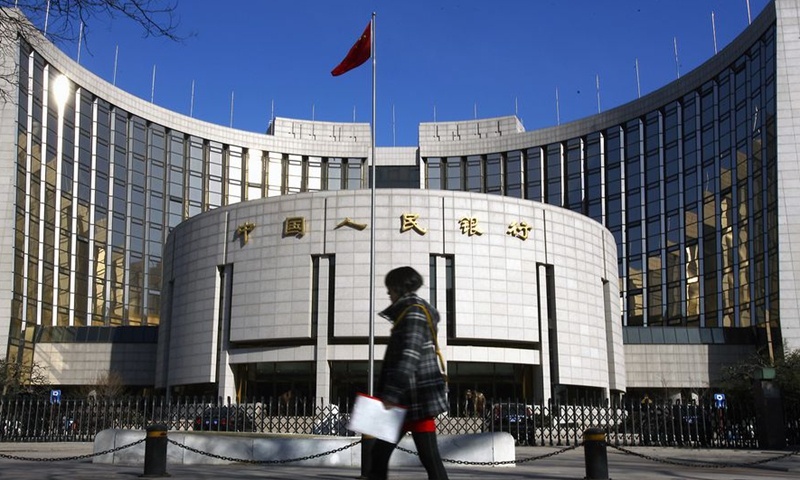
A file photo shows a pedestrian walks past the headquarters building of the People's Bank of China in Beijing, capital of China. (Photo: Xinhua)
China's central bank unveiled draft rules for non-banking payment institutions on Wednesday, intending to flesh out the regulatory toolbox that would include an anti-monopoly regulatory toughening of the payment sphere.
Preventing financial risks in the payment arena is an important part of efforts to avoid systemic financial risks, the People's Bank of China (PBC), the country's central bank, said in a statement on its website, speaking of the necessity and urgency of subjecting payment providers to tougher scrutiny.
The draft rules would guide payment platforms to focus more on product innovation and user services, and better meet the payment needs of the public and a diversified real economy.
The PBC outlined the thinking behind the draft, noting that businesses falling in the same category will have to conform to the same rules to avert regulatory arbitrage and avoidance.
Payment businesses will be re-categorized into two types - stored value account operations and payment transaction handling.
An overarching regulatory framework will be in place for the oversight of payment agencies and their business operations and affiliated transactions.
The draft rules also stressed that reserve funds are not the property of payment agencies, which are required to deposit the reserve funds with the PBC or qualified commercial banks.
The PBC is seeking public comment on the draft rules through February 19.
Harsher regulatory measures against payment monopolies got a mention in the draft rules, which envision crystallizing standards for the identification of market dominance and thus safeguarding fair competition.
The rules to be reviewed are the latest in an array of antitrust efforts as the authorities have on many occasions pledged to rein in unchecked expansion of capital.
In a speech to the 14th Asian Financial Forum on Monday, Guo Shuqing, chairman of the China Banking and Insurance Regulatory Commission (CBIRC), vowed to resolutely oppose monopolies and unfair competition, and he stressed that the basis for financial innovation must be under prudent regulatory oversight.
While the draft rules don't single out specific payment agencies, attention has focused on how the country's two major digital payment platforms - Tencent's WeChat Pay and Ant Group's Alipay - would comply with the new rules.
Ant Group, the Alibaba fintech offshoot, which is making haste to set up a rectification work team following a second regulatory interview in late December with the country's top financial regulators including the PBC, could be a focal payment agency to be under the purview of the new rules.
Also on Wednesday, Jack Ma Yun, the actual controller of Ant Group, resurfaced at a philanthropic event via video link after an absence of more than two months from public view.
Ma and Ant management were summoned for a regulatory talk on November 2, ahead of sudden announcements halting Ant's dual listing in Shanghai and Hong Kong.


